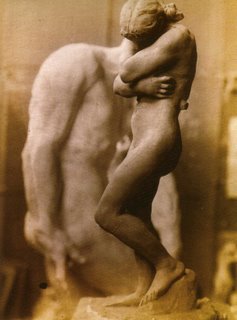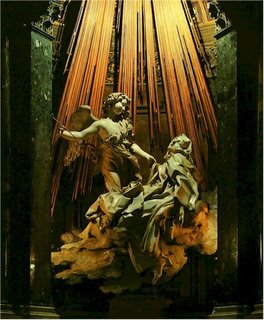
This weekend I went to 500 Acre Wood, near Tunbridge Wells. Bob and I set off there in the car, attracted by its name which reminded us of those endearing creatures from a Hundred Acre Wood in the AA Milne stories.
Place names are so interesting; they can be so evocative, and so unlike the place they are actually describing. As we passed through Crowborough, staring at a map I discovered there was an area in the town called Blackness. So we set off up little streets and round bends to find the elusive Blackness in the heart of Crowborough.
However, after much twisting and turning we found ourselves on a road we could not get off, that wound down the hill and straight into Morrisons' basement carpark. We sat there, amused and befuddled. I guess you never quite know where the Blackness will take you.
500 Acre Wood was just that - not too big with trees still relatively young, only just grazing the sky, leaving ample room for the sun to streak through their leaves. Woods are perfect in Autumn, they feel like the right place to be, like going into some kind of protective womb; a shuffling, muffled silence, broken only by the occasional birdsong; full of life that slowly grows and will soon hibernate or drop its leaves.
I love the dappled darkness in there, the soft damp woodyness beneath my shoes, enclosed yet winding onwards, empty, yet full of presence. In woods I always feel like I am in a room full of silent people. I know that they are thinking and communicating to each other and to me in their own way, but no words leave them. I am well aware of the trees here. They say nothing, but speak volumes. I can't help but be in awe.
As we left the wood, we walked out onto a vista of red and green hills, their vision hazy in my eyes, adjusting as I was from darkness to daylight. We stood by a tree and looked up. There were mosquitoes dancing by a branch. I watched as they circled each other in the bright light and I felt my eyes changing, felt myself change, as the world opened its door and let me in.
I remembered then what I always seem to forget: that whatever it is that's making those mosquitos dance, is the same thing that is circulating in everything. That is still there even when the breath has left and the bones are laid to rest. That brought me here in the first place. Oh yes.
I wonder why I can't see this all the time. Why the vision leaves me often when I most would have it near. It seems an inescapable pattern embedded in my fragile human nature, this forgetting.
I've been reading a lot about St Francis lately. It's been stirring up soul in bowlfuls. This is what GK Chesterton wrote about what happened immediately after St Francis' conversion. It resonated, re-reading it after being at 500 Acre Wood.
He went out half-naked in his hair-shirt into the winter woods, walking the frozen ground between the frosty trees; a man without a father. He was penniless, he was parentless, he was to all appearance without a trade or a plan or a hope in the world; and as he went under the frosty trees, he suddenly burst into song.
I know that I horde life. I keep it under lock and key, lest it leave me alone and lacking. And of course, what we horde, what we think keeps us safe, keeps our very souls imprisoned. I think I know what success means, what life means, what it means to gain and what it means to lose. And I am in a sense right. But so wrong. If I could remember it was never mine in the first place, but a gift, for as long as I exist and longer. If I could know that I am never really alone, even in my loneliest days, or that success can't be measured by worldly standards, only the standard of our souls, I think I'd be a happier person.
But then, somehow it seems that we must forget in order to remember again, and keep trying to follow whatever helps that remembering. Bowing the head, clutching the beads, bending the knee, humming repetitions under our breath. Whether it is in a church or in the middle of shopping centres. Whether it's Benedict or Bukowski. Gautama or Rimbaud. Our betraying friend or our most loyal. Venerating the light. Loving the dark.
Words so easy for me to write, so hard to remember. And I am no St Francis under the frosty trees. Chesterton writes a beautiful description of St Francis' asceticism and finally, his death.
It was not a self-denial merely in the sense of self-control. It was as positive as a passion; it had all the air of being as positive as pleasure. He devoured fasting as a man devours food. He plunged after poverty as men have dug madly for gold. ..It is certain that he held onto this heroic or unnatural couse from the moment when he went forth in his hair-shirt into the wintery woods to the moment when he desired even in his death agony to lie bare upon the bare ground, to prove that he had and that he was nothing. And we can say, with almost as deep a certainty; that the stars which passed above that gaunt and wasted corpse stark upon the rocky floor had for once, in all their shining cycles round the world of labouring humanity, looked down upon a happy man.




